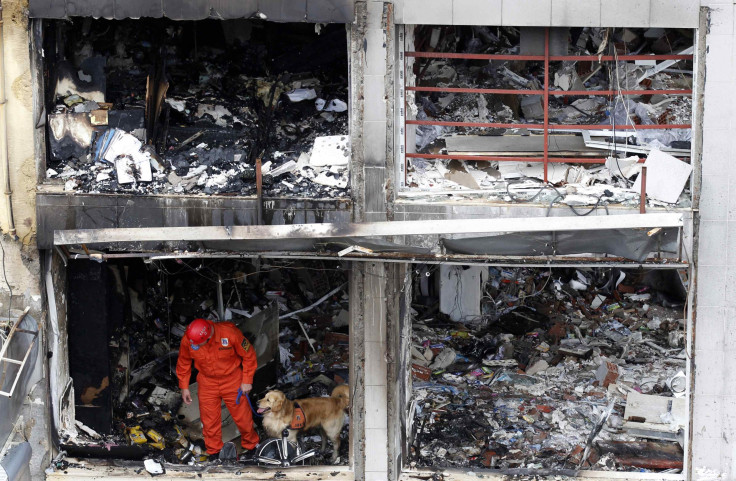Turks Arrest 9 In Car Bombings, Blame Syria

Turkish authorities have arrested nine Turkish citizens they say are linked to the Syrian regime for two car bombings that killed 46 people in a border town, Deputy Prime Minister Besir Atalay said Sunday morning. Syria denied any role in the attack.
Foreign Minister Ahmet Davutoglu said those responsible for the bombings in Reyhanli, a haven for Syrian rebels as well as refugees, probably also staged an attack on the Syrian coastal town of Banias a week ago in which at least 62 people were killed, Reuters reports.
"The attack has nothing to do with the Syrian refugees in Turkey; it's got everything to do with the Syrian regime," Davutoglu said in an interview on TRT television.
"We should be careful against ethnic provocations in Turkey and Lebanon after the Banias massacre," he said.
The group responsible has a history of operations in Turkey, Davutoglu said. The Syrian Resistance militia, led by a Turkish Alawite, Mihrac Ural, is believed to be behind the blasts, the Turkish newspaper Yeni Safak reports, according to Bloomberg News, citing unidentified intelligence sources.
Earlier Sunday in Damascus, Syrian Information Minister Omran al-Zoubi rejected Turkey's charges that Syrian President Bashar al-Assad's regime was behind the bombs.
"Syria didn't and will never undertake such acts, because our values don't allow us to do this," al-Zoubi told a news conference, according to the Associated Press.
He accused Turkey of destabilizing the border areas between the two countries. "The Turkish government had turned the border areas into centers of international terrorism, as it is still facilitating the arrival of arms and explosives, improvised explosive devices, cars, money and murderers to Syria," he said.
Banias is a Sunni Muslim pocket in the midst of a large Alawite enclave on Syria's Mediterranean coast. Activists in the area accuse militias loyal to Assad, an Alawite, of ethnic attacks.
Reyhanli has become a logistics base for the rebels fighting Assad just over the border and the thousands of Syrian refugees there are mostly Sunni.
Turkish Interior Minister Muammer Guler said the attacks had been carried out by a group known to the Turkish authorities and with direct links to Syria's Mukhabarat intelligence agency. The bombs ripped into crowded streets near Reyhanli's shopping district in the early afternoon on Saturday, scattering concrete blocks and smashing cars as far as three blocks away. Among the dead were 35 Turks and three Syrians, Atalay said.
Turkish authorities determined that the nine were involved through their "testimonies and confessions," Atalay said. He did not elaborate.
Protests erupted in Reyhanli after the blasts, Reuters reports, with some blaming Syrian residents for bringing violence over the frontier and others railing against Turkey's foreign policy. Some smashed the windows of cars with Syrian number plates.
"We don't want the Syrians here anymore. They can't stay here. Whether we even wanted them or not, they can't stay after this," a teacher in Reyhanli, who gave his name as Mustafa, said.
He said Prime Minister Recep Tayyip Erdogan's Syria policy was to blame.
"It's Tayyip Erdogan politics that have done this. Turkey should never have gotten involved in this mess. We have a 900 km border with Syria. They come and go in wherever they like. Everyone here is in fear."
Speaking later Sunday in Istanbul, Erdogan vowed to keep Turkey out of the "Syrian quagmire" despite the attack.
© Copyright IBTimes 2024. All rights reserved.











